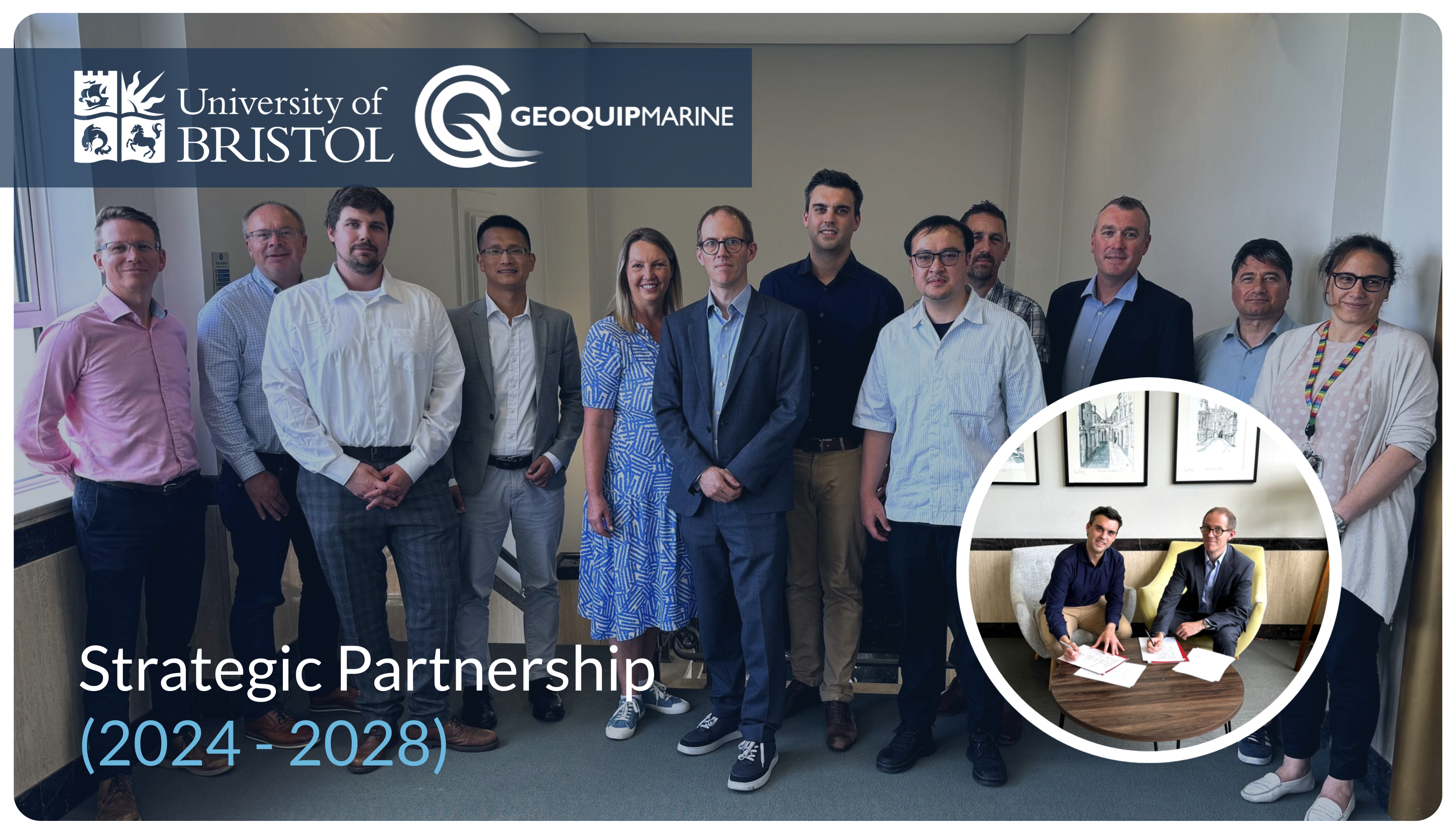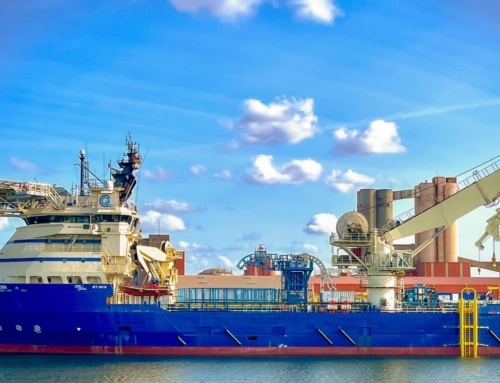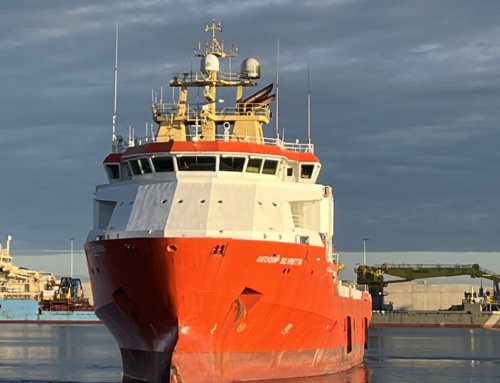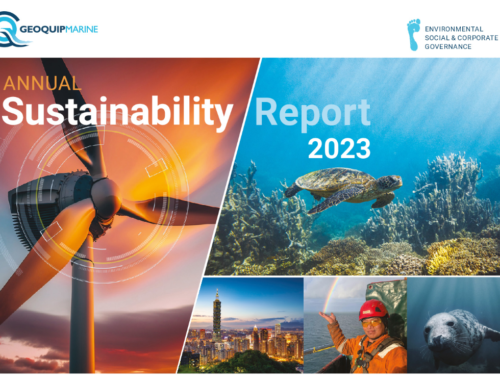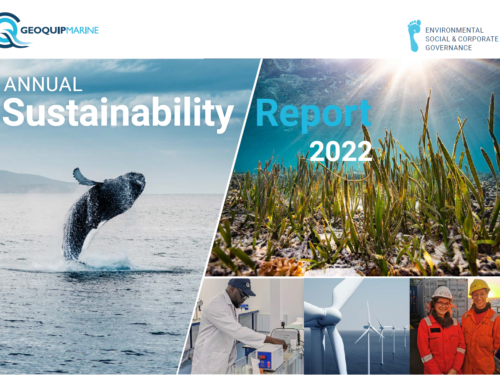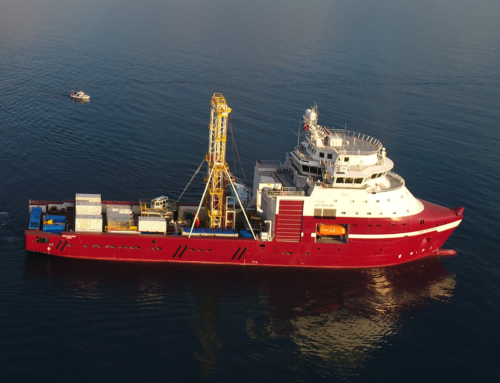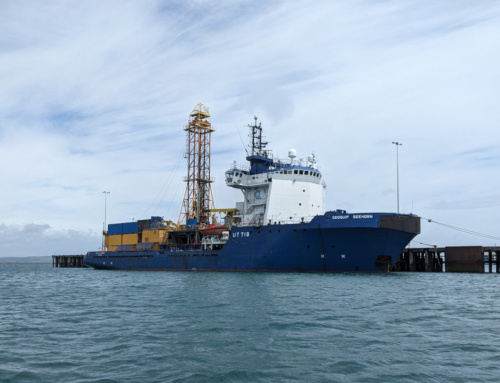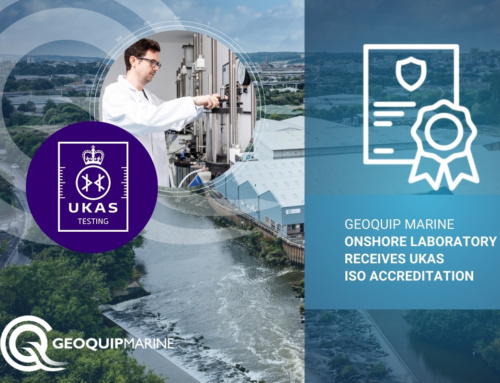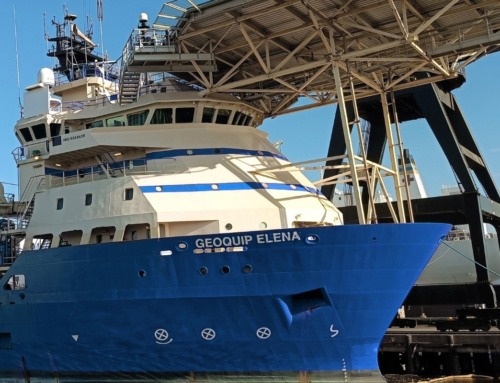Geoquip Marine and University of Bristol embark on a strategic collaboration
Offshore geotechnical solutions provider Geoquip Marine (GQM) and the University of Bristol (UOB) have launched a four-year collaboration focusing on advanced experimental geotechnics research, skills development and industry-academia collaboration. The two partners signed a memorandum of understanding (MoU) at GQM’s Bristol office on 18 July for a long-term strategic partnership that combines GQM’s expertise in geotechnical data acquisition with the research capabilities of UOB’s geotechnical group.
This new collaboration aims to address some of today’s pressing challenges in offshore geotechnical engineering, which are linked to global net-zero commitments. The newly signed MoU outlines the collaboration framework, which is divided into multiple programmes. One key initiative is the establishment of co-funded PhD studentship schemes, the first of which will focus on advanced laboratory and field characterisation of challenging offshore geomaterials. The outcomes are envisaged to provide valuable insights for offshore engineering practices.
A further aim of the GQM-UOB partnership is to nurture talent and facilitate interdisciplinary knowledge transfer to help improve understanding of offshore geotechnical engineering among academics and professionals. This will be achieved through professional training schemes and combined research activities. GQM will also contribute towards new advanced testing equipment at UOB’s geomechanics laboratory; moreover, both parties have agreed to share laboratory equipment and space, where mutually beneficial.
This partnership follows GQM’s recent £1.9M investment in its Bristol laboratory, which forms part of a broader expansion project. By the end of this year, its laboratory will offer a comprehensive range of geotechnical testing services, ranging from soil classification to advanced soil dynamics.
The collaboration will be extended to develop and innovate geotechnical testing facilities to address emerging research and commercial testing needs, involving significant support by a leading equipment supplier and manufacturer, GDS Instruments.
GQM Head of Engineering, Chris Brandish-Lowe, said: “We know continuous improvement and innovation are vital for maintaining our company’s competitive edge. This new partnership with UOB aligns well with our mission to provide high-quality engineering services on a global scale. I am excited to see the groundbreaking outcomes and advancements that will emerge from this collaboration.”
Head of the UoB’s School of Civil, Aerospace and Design Engineering, Professor Ian Craddock, said: “We are looking forward to seeing the positive value of the strategic relationships with industry, which will powerfully inform the University’s own teaching and research decisions.”
GQM Research and Development Engineer, industrial lead of the partnership, Mingnan Li, said ‘’It is great to see the two local world-class organisations are linked in a strategic collaboration framework. I am very excited to work with the University to develop new, innovative methods and technologies in offshore geotechnical engineering.’’ He also pointed out the environmental benefits of the local partnership, emphasising its role in contributing to low carbon targets.
Lecturer in Geotechnical Testing, academic lead of the partnership, Dr Tingfa Liu, said: “The partnership builds significant momentum and synergies to address emerging challenges in offshore site characterisation at local, southwest England and global scales for renewable energy developments.”


